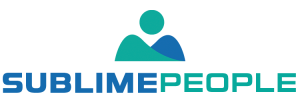Are you feeling uncertain and unprepared to create a job skills assessment? Have no fear! With the right tips and tricks, you will learn how to prepare for a skills assessment.
In this blog post, we will go over the essential steps you should take before creating a skills assessment. Read on to learn more about how to prepare for a skills assessment without feeling overwhelmed or uncertain of what lies ahead.
In this Article:
Candidate skills assessment vs. other assessment methods
Candidate skills assessment tests are a reliable and effective way to evaluate potential hires, providing an in-depth understanding of their hard and soft skills. These tests follow a specific protocol that allows employers to precisely measure capabilities like typing speed or attention to detail.
Compared to other methods of assessment, such as interviews or cover letters, skills assessments provide a far more thorough insight into the abilities and knowledge of job candidates. Other pre-employment assessment methods include:
- Personality tests
- Resume reviews
- Job interviews
- Reference check

Types of recruiter assessment tests
There are a few different types of skills assessment tests that employers may use during the recruitment process.
- Technical skills tests: These exams assess a person’s ability to use certain software or technology and how well they understand the nuances of each program.
- Soft skills tests: Most employers look for people with strong soft skills, such as emotional intelligence or problem-solving abilities. These assessments measure a candidate’s aptitude in areas like communication, teamwork, and customer service.
- Job fit tests: Job fit tests are designed to evaluate a person’s abilities in relation to the particular job they are applying for. These tests look at how well an individual’s skills match up with what is required of them in the role.
What is the purpose of a skills assessment?
The purpose of a skills assessment is to help hiring managers quickly identify the best job candidates out of a pool of applicants. By having each person take part in an objective and standardized test, employers can better assess which people are likely to be successful and productive employees.
Screen candidates objectively
Skills tests are an excellent way to screen job candidates objectively. By looking at the results of these exams, employers can easily identify which applicants have the skills and knowledge necessary to perform well in the role. By eliminating applicants who do not meet the requirements, companies can save time and resources while focusing on finding the best talent for the position.
Make a great first impression on your candidates
In this day and age, applicant experience matters. You want to make sure that your candidates have a positive experience throughout the entire hiring process.
One way to ensure that is by having effective skills assessments in place. By taking a creative approach to testing, you can give job applicants an engaging and informative assessment that shows off your company’s culture in the best light.

Interview fewer candidates
By using skills assessment tests, you can cut down on the amount of time spent interviewing job applicants. This saves time and resources while providing valuable information that helps you determine who is the best fit for your company.
Improve retention rates
When you are able to make a more informed decision based on skills assessment tests, the likelihood of having an employee stay with your company for a longer period of time increases dramatically. By focusing on assessing specific aspects of a person’s abilities and qualifications, employers can easily identify the right fit for their organization, improving retention rates.
What should be included in a skills assessment?
No two skill assessments are alike; it all depends on what your hiring needs are. That said, there are a few key elements that should always be present in these exams:
- Multiple-choice questions: These types of questions can help you evaluate aspects like technical knowledge or job skills.
- Creative approach to testing: Instead of relying solely on multiple-choice tests, consider throwing in some creative challenges that allow candidates to show off their skills. For example, you could ask them to solve a problem using software or present a solution to a customer service issue.
- A focus on specific skills: Be sure to include assessments related to the job description and industry. That way, you can better evaluate applicants based on the specific skills that are required for the role.
What are the most common skills employers look for?
The skills that employers look for in job candidates vary depending on the industry and position. However, some core skills will remain consistent throughout the hiring process. These include:
1. The ability to give and receive feedback
One of the most important skills needed for skill assessment is the ability to give and receive feedback. Feedback is essential in any job, as it allows employers to assess how well you are performing in the position, as well as how well you fit with the company and its values. Feedback is sometimes career advice from your hiring manager.
2. The ability to set goals
Another important skill needed hiring process for skill assessments is the ability to set goals. Goals provide a sense of direction and motivation and help individuals to focus their efforts on achieving specific outcomes. It is important to have the ability to set meaningful goals that are realistic and achievable.

3. The ability to think critically
The ability to think critically is also essential in any job, as it helps individuals to interpret and analyze data effectively. Critical thinking skills allow employees to make decisions quickly and efficiently, as well as to identify potential problems and develop solutions.
4. Emotional intelligence
Emotional intelligence is another important skill needed for assessment. This involves the ability to recognize and manage emotions in oneself as well as in others. Emotional intelligence is important for successful communication, problem-solving, and conflict resolution.
5. Technical skills
Finally, employers also value individuals with technical skills. This includes the ability to use computers, software programs, and other technology to complete tasks. Technical skills are also important for troubleshooting and problem-solving.
These are just a few of the skills employers look for when assessing job applicants. Depending on the position, additional skills may be necessary as well. It is important to research the specific job requirements before taking a skills assessment test to make sure you are adequately prepared.

How to prepare for a skills assessment
If you’re looking to hire the best talent, it’s important to conduct skills assessments as part of your recruitment process. Here are a few tips on how to prepare for a skills assessment and make the most out of it:
Research the job position and company
Before taking a skills test, it is important to do some research on the job position and company. This includes reading the job description carefully so that you know what skills and qualifications are necessary for the role. Additionally, researching the company and its values can help you to better understand the type of individual they are looking for. Learn about the hiring manager and the team that would be working with you, as well.
Focus on specific aspects of the job
It is also important to focus on specific aspects of the job that you want to assess, such as problem-solving, communication skills, teamwork, and research capabilities. This will help you to get a better understanding of each candidate’s strengths and weaknesses and will ensure that you are evaluating the right skills.
Practice and self-assessment
When preparing for a skills assessment test, it is important to practice and self-assess your skills. This can be done by taking practice tests that are available online or by creating a few sample questions yourself. Additionally, self-assessing your skills will help you identify the areas in which you need to improve.
Create a creative approach
When taking a skills assessment test, it is important to create a more creative approach to answering the questions. This includes coming up with new solutions and strategies rather than simply selecting the most obvious answer or sticking to what you already know. Additionally, you should create a testing environment that is tailored to each role and encourages applicants to express their true skills. Look for ways to make the test interactive or more engaging so that you can get the best results.
Eliminate applicants who don’t meet the criteria
By setting specific criteria for what is required for a role, you can quickly eliminate applicants who do not meet the set standards. This helps to narrow down your list of potential hires and saves time in the recruitment process.
Focus on specific aspects
Make sure that your tests focus on the skills and abilities that are most important for the job in question. This will help you determine which applicants have all of the qualifications needed to fill the position.
Provide valuable feedback
After conducting skills assessments, it’s important to provide job applicants with feedback. This will help them prepare better for future interviews and also give them a better understanding of your company’s culture.

What type of questions are asked in skill tests?
Skill tests typically involve multiple-choice questions, self-assessments, and creative tasks. Multiple-choice questions test a person’s knowledge in a specific area, while self-assessments can evaluate a person’s strengths and weaknesses. Creative tasks may involve developing or presenting new ideas, or solving problems. These tests can provide valuable information to employers when assessing job applicants and help eliminate unsuitable candidates.
A word from SublimePeople
Although some skills assessments can be nerve-wracking, preparation is key. Learning how to prepare for a skills assessment is an important step. By doing your research, creating a creative approach to answering questions, and focusing on specific skills needed for the job, you can ensure that you get the best out of these tests. Ultimately, skills assessment tests can provide valuable information to employers when assessing job applicants and help eliminate unsuitable candidates. With a few tips and tricks up your sleeve, you can use skills assessment tests to your advantage in the hiring process.
What tips do you have for preparing for a skills assessment? Leave us a comment!


